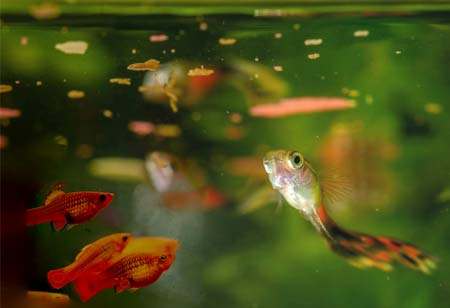

Thank you for Subscribing to Agri Business Review Weekly Brief

Implementing advanced water filter treatment systems is crucial for sustainable aquaculture practices. These systems enhance water quality, promote fish health, and ensure the long-term viability of fish farming operations.
In pursuit of sustainable aquaculture practices, fish farmers increasingly recognise the importance of implementing effective water filtration systems. As the demand for seafood rises, these advanced systems have become crucial in ensuring optimal water quality and promoting the industry's overall sustainability. With their ability to remove impurities and maintain a healthy aquatic environment, these systems have emerged as harbingers of a positive transformation in fish farming practices.
Water quality plays a vital role in the success of aquaculture operations. Poor water conditions can lead to reduced fish growth, increased mortality rates, and the spread of diseases. To address these challenges, fish farmers are adopting innovative water filtration that effectively removes contaminants and maintains optimal water conditions. These advanced systems utilise a multi-stage process, incorporating mechanical, biological, and chemical filtration techniques.
The mechanical filtration stage involves the removal of larger particles and debris through screens and sedimentation tanks. This process ensures that suspended solids are effectively eliminated, resulting in cleaner water for the fish to thrive in.
Beneficial bacteria play a crucial role in the biological filtration stage. They break down organic matter and convert harmful ammonia into less toxic compounds. This process helps maintain a healthy balance in the aquatic environment, reducing the risk of diseases and promoting fish health and growth.
The final filtration stage involves chemical filtration, where activated carbon removes dissolved impurities. This further enhances water quality, ensuring optimal conditions for the fish.
Implementing these advanced systems offers several benefits to the aquaculture industry. Firstly, they help maintain optimal water parameters, including temperature, pH, and oxygen levels, which are crucial for fish health and growth. By providing a clean and well-balanced environment, these filtration systems reduce stress on aquatic life, minimising the risk of diseases and improving overall productivity.
These systems also contribute to the sustainability of aquaculture operations. Removing suspended solids and organic matter prevents the accumulation of waste materials in the water, reducing the environmental impact and the risk of eutrophication. This promotes a healthier ecosystem and minimises the need for excessive water exchanges, conserving water resources and reducing operational costs.
The efficiency and reliability of these filtration systems play a significant role in the success of aquaculture ventures. They are designed to handle large volumes of water and ensure consistent filtration performance even in high-demand situations. With automated features and real-time monitoring capabilities, these systems allow for efficient operation and maintenance, reducing labour requirements and optimising overall productivity.
These advanced filtration systems also align with regulatory requirements and industry standards. Many countries have established guidelines and regulations regarding water quality in aquaculture facilities to ensure the safety of seafood products and protect the environment. Implementing these filtration systems helps fish farmers meet these standards and maintain compliance with regulatory bodies.
As the aquaculture industry continues to grow, the importance of water quality management cannot be overstated. Advanced water filtration systems provide a reliable and efficient solution to maintain optimal water conditions, enhance fish health, and promote sustainable aquaculture practices. By investing in these filtration technologies, fish farmers can ensure their operations' long-term viability and success while meeting the increasing demand for high-quality seafood.
